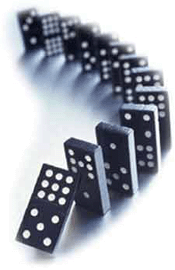2nd Kings 20:6
In those days Hezekiah became mortally ill. And Isaiah the prophet the son of Amoz came to him and said to him, “Thus says the LORD, ‘Set your house in order, for you shall die and not live.’” Then he turned his face to the wall and prayed to the LORD, saying, “Remember now, O LORD, I beseech You, how I have walked before You in truth and with a whole heart and have done what is good in Your sight.” And Hezekiah wept bitterly. Before Isaiah had gone out of the middle court, the word of the LORD came to him, saying, “Return and say to Hezekiah the leader of My people, ‘Thus says the LORD, the God of your father David, “I have heard your prayer, I have seen your tears; behold, I will heal you. On the third day you shall go up to the house of the LORD. I will add fifteen years to your life, and I will deliver you and this city from the hand of the king of Assyria; and I will defend this city for My own sake and for My servant David’s sake.”’” Then Isaiah said, “Take a cake of figs.” And they took and laid it on the boil, and he recovered.
Question: How can God say, “you shall die and not live,” if He knows that in reality, He will actually grant another 15 years?
Answer: That’s exactly what would have happened, had God not intervened.
There is the potential future, which speaks of God’s Middle Knowledge, and the eventual future, which speaks of God’s Foreknowledge. The potential future is what God knows would happen, while the eventual future is what God knows will happen.
God’s Foreknowledge of the eventual future is knowledge that is after-the-fact and non-causal, while God’s Middle Knowledge is predictive and authoritative.
In other words, God’s Foreknowledge of the eventual future does not cause anything, nor does it determine anything. Similarly, God’s Middle Knowledge doesn’t cause or determine anything either. For instance, at Matthew 11:21, Jesus can speak with certainty, concerning what Tyre and Sidon “would have” done, had they seen His miracles. How does He know this, with such certaintly, unless He has exhaustive Middle Knowledge, that is, knowledge of all contingencies, that is, knowing all of the what-ifs? For instance, in the potential future, God can accurately say that Hezekiah “shall die,” while in the eventual future, He knows that He will, instead, through being healed by God, go on to live another 15 years.
John Calvin: “We also note that we should consider the creation of the world so that we may realize that everything is subject to God and ruled by his will and that when the world has done what it may, nothing happens other than what God decrees.” (Acts: Calvin, The Crossway Classic Commentaries, p.66, emphasis mine)
John Calvin: “First, the eternal predestination of God, by which before the fall of Adam He decreed what should take place concerning the whole human race and every individual, was fixed and determined.” (Concerning the Eternal Predestination of God, p.121, emphasis mine)
One of the problems with Deterministic Calvinism is that it makes God’s statement that He will “add” 15 years to the end of Hezekiah’s life, impossible. In the Determinist’s static view of the universe, everything is fixed, predetermined and decreed by God, which makes God the author everything, including sin.
Question: Using a Determinist’s calculator, what is 54 + 15 = ?
Answer: 54. (The 15 is just an illusion.)
In a static system, adding is just an illusion. In other words, there can be no adding in a fixed system, and hence, another reason why Determinism is incompatible with the Bible. In contrast, in a dynamic system, God can take what would be the future, and intervene, in order to bring about another outcome.
Question: What is another name of Deterministic Calvinism?
Answer: Deism, which is a “belief in a God who created the
world but has since remained indifferent to it.” Determinism
is like a set of dominos, arranged from before the foundation
of the world, in which every action, thought and deed,
including God’s, are all a part of a complex set of dominos.
Therefore, in such a static system, not only would man’s Free
Will be an illusion, but God’s as well, with all of His
interactions merely being dominos within the unalterable chain
of prearranged dominos, in which adding is impossible.

